Resource Issues: Marine Debris
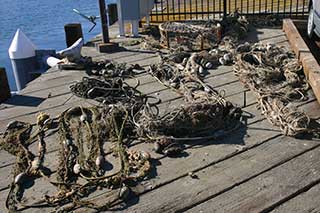 Overview
Overview
Trash and other solid, man-made materials that make their way to our oceans are known as “marine debris." Common types of marine debris include plastic bags, bottles, cans, and cigarette butts. The sources of marine debris are both land-based and ocean-based. Litter on the streets can wash down storm drains and rivers into the ocean. Trash left on the beach pollutes the ocean and our seashores. Extreme natural events, like tsunamis and hurricanes can carry any number of materials out to sea. Ocean-based sources of marine debris include fishing gear (like nets, traps, and line) that is lost or sometimes abandoned, and cargo lost overboard from shipping vessels.
Marine debris is a widespread pollution problem facing the world's oceans. Litter washes ashore, dirtying beaches. Ocean currents can move marine debris potentially far from where it originated. Debris can injure marine animals that may swallow it or become entangled in it.
A lot is happening to prevent marine debris within the Monterey Bay National Marine Sanctuary. Click on the links below to learn more and get involved!
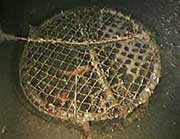 |
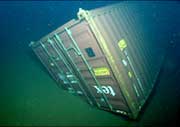
|
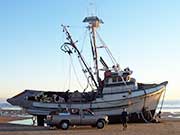
|
||
Other Efforts
- Ocean Guardian Schools
- Save Our Shores beach cleanups and pollution reduction programs
- City bans of single-use plastic bags ()and Styrofoam take-out containers
- California Coastal Cleanup Day
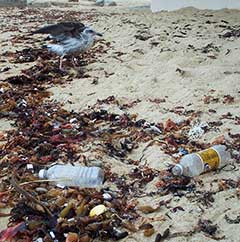 Everyone can make a difference in reducing the amount of trash in the ocean and on our beaches. You can do your part by:
Everyone can make a difference in reducing the amount of trash in the ocean and on our beaches. You can do your part by:
- Reducing the amount of trash you produce by reusing or recycling (try using reusable bags, water bottles, and coffee mugs)
- Disposing of trash properly
- Recycling or disposing of your fishing line properly
- Participating in a beach or stream cleanup
- Learn more about what you can do to prevent marine debris
For more information on marine debris, visit:
- NOAA Marine Debris Program
- EPA Marine Debris Prevention
- West Coast Governor's Agreement
- Japan Tsunami Marine Debris
